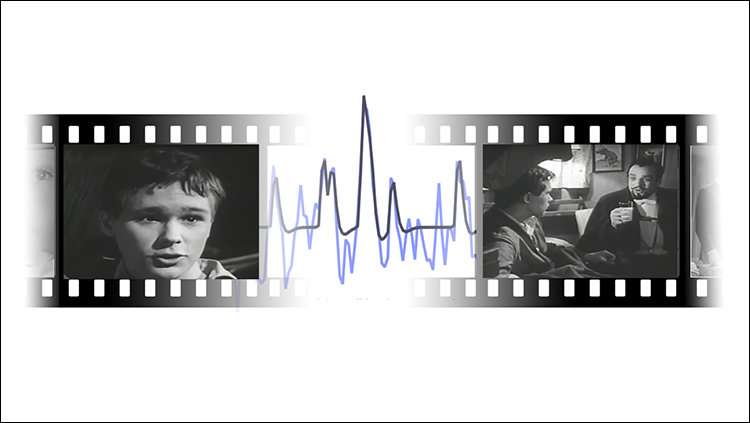The activity in a brain region called the hippocampus, which is involved in forming new memories, spikes at the boundaries between distinct events within a film. The movie frames shown here are for illustration purposes only, and taken from "The Sorcerer's Apprentice (1961)" By Alfred Hitchcock. Credit: Aya Ben-Yakov and Richard Henson
A neuroimaging study of human participants watching the 1994 film Forrest Gump and Alfred Hitchcock's 1961 television drama Bang! You're Dead suggests an important role for the hippocampus in segmenting our continuous everyday experience into discrete events for storage in long-term memory. The research, published in JNeurosci, is among the first to investigate hippocampal function during a natural experience.
Aya Ben-Yakov and Richard Henson found that the hippocampus responded most strongly to the films at the points that independent observers identified as the end of one event and the beginning of a new one.
The researchers found a strong match between these event boundaries and participants' hippocampal activity, varying according to the degree to which the independent observers agreed on the transition points between events.
While watching the two-hour long Forrest Gump, hippocampal response was more strongly influenced by the subjective event boundaries than by what the filmmaker may consider a transition between scenes, such as a change in location. This suggests that the hippocampus is sensitive to meaningful units of experience rather than perceptual cues.
More information: The hippocampal film-editor: sensitivity and specificity to event boundaries in continuous experience, JNeurosci (2018). DOI: 10.1523/JNEUROSCI.0524-18.2018
Journal information: Journal of Neuroscience
Provided by Society for Neuroscience























